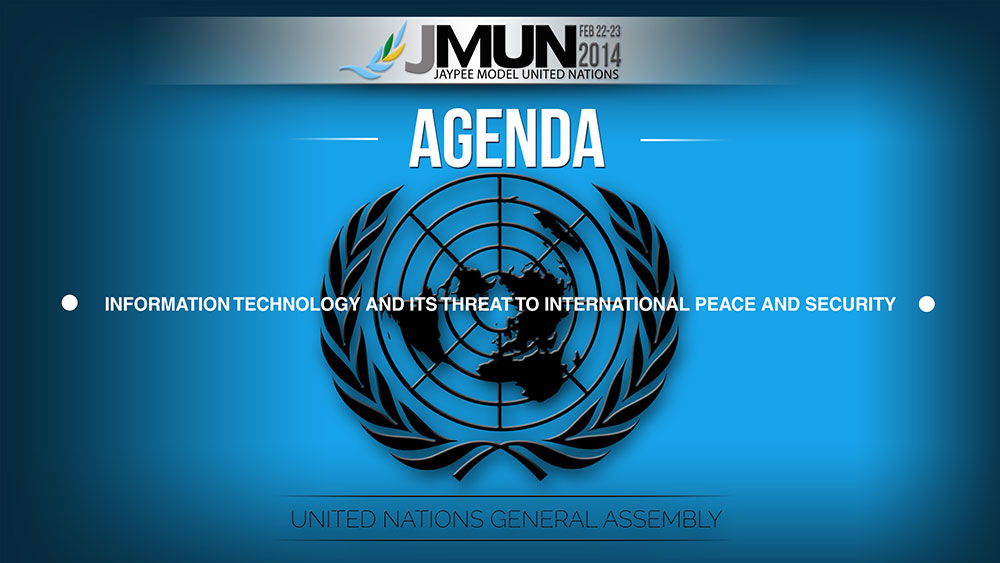 The United Nations General Assembly (UNGA/GA) is one of the six principal organs of the United Nations and the only one in which all member nations have equal representation. Its powers are to oversee the budget of the United Nations, appoint the non-permanent members to the Security Council, receive reports from other parts of the United Nations and make recommendations in the form of General Assembly Resolutions It has also established a wide number of subsidiary organs.
The United Nations General Assembly (UNGA/GA) is one of the six principal organs of the United Nations and the only one in which all member nations have equal representation. Its powers are to oversee the budget of the United Nations, appoint the non-permanent members to the Security Council, receive reports from other parts of the United Nations and make recommendations in the form of General Assembly Resolutions It has also established a wide number of subsidiary organs.
The General Assembly meets under its president or Secretary-General in regular yearly sessions the main part of which lasts from September to December and resumed part from January until all issues are addressed (which often is just before the next session's start). It can also reconvene for special and emergency special sessions. Its composition, functions, powers, voting, and procedures are set out in Chapter IV of the United Nations Charter.
The first session was convened on 10 January 1946 in the Westminster Central Hall in London and included representatives of 51 nations.
Voting in the General Assembly on important questions – recommendations on peace and security; election of members to organs; admission, suspension, and expulsion of members; budgetary matters – is by a two-thirds majority of those present and voting. Other questions are decided by majority vote. Each member country has one vote. Apart from approval of budgetary matters, including adoption of a scale of assessment, Assembly resolutions are not binding on the members. The Assembly may make recommendations on any matters within the scope of the UN, except matters of peace and security under Security Council consideration. The one state, one vote power structure theoretically allows states comprising just five percent of the world population to pass a resolution by a two-thirds vote.
Although the resolutions passed by the General Assembly do not have the binding forces over the member nations(apart from budgetary measures), pursuant to its Uniting for Peace resolution of November 1950 (resolution 377 (V)), the Assembly may also take action if the Security Council fails to act, owing to the negative vote of a permanent member, in a case where there appears to be a threat to the peace, breach of the peace or act of aggression. The Assembly can consider the matter immediately with a view to making recommendations to Members for collective measures to maintain or restore international peace and security.
The First Committee deals with disarmament, global challenges and threats to peace that affect the international community and seeks out solutions to the challenges in the international security regime.
It considers all disarmament and international security matters within the scope of the Charter or relating to the powers and functions of any other organ of the United Nations; the general principles of cooperation in the maintenance of international peace and security, as well as principles governing disarmament and the regulation of armaments; promotion of cooperative arrangements and measures aimed at strengthening stability through lower levels of armaments.
The Committee works in close cooperation with the United Nations Disarmament Commission and the Geneva-based Conference. It is the only Main Committee of the General Assembly entitled to verbatim records coverage.
The First Committee sessions are structured into three distinctive stages: